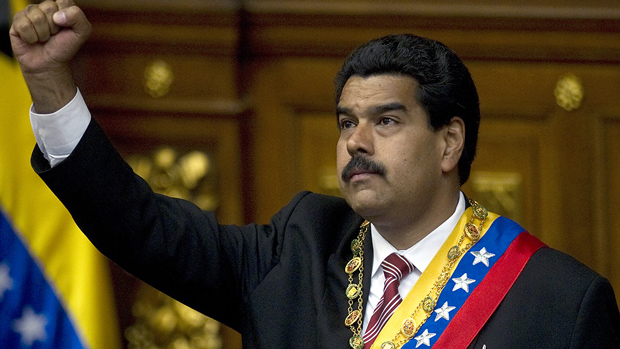Why has Obama declared Venezuela a national security threat?
Venezuela joins Iran and Syria on the threat list, as Washington issues latest round of sanctions against officials

A free daily email with the biggest news stories of the day – and the best features from TheWeek.com
You are now subscribed
Your newsletter sign-up was successful
Washington has declared Venezuela a national security threat and has imposed a new round of sanctions against the country in an escalating diplomatic dispute.
Barack Obama signed an executive order to impose travel bans and asset freezes on seven Venezuelan law enforcement and military officials.
"Venezuelan officials past and present who violate the human rights of Venezuelan citizens and engage in acts of public corruption will not be welcome here, and we now have the tools to block their assets and their use of US financial systems," said a White House spokesperson.
The Week
Escape your echo chamber. Get the facts behind the news, plus analysis from multiple perspectives.

Sign up for The Week's Free Newsletters
From our morning news briefing to a weekly Good News Newsletter, get the best of The Week delivered directly to your inbox.
From our morning news briefing to a weekly Good News Newsletter, get the best of The Week delivered directly to your inbox.
Washington also said it was "deeply concerned" by the government's efforts to intimidate its political opponents and called on the country to release its political prisoners.
Diplomatic relations between the two counties have been strained for decades, and Washington and Caracas have not held full diplomatic representation since 2008, after the late Socialist leader Hugo Chavez expelled US ambassador Patrick Duddy.
However, economic ties between the two countries remain strong, with Venezuela remaining one of top five suppliers of foreign oil to the US, according to the The Guardian.
The latest round of sanctions "effectively confirms Venezuela as the United States' primary adversary in Latin America," a title that had previously applied to Cuba, until a recent thaw in relations, Reuters says.
A free daily email with the biggest news stories of the day – and the best features from TheWeek.com
Earlier this month, President Nicolas Maduro announced his own diplomatic sanctions against the US and barred a list of US politicians, including George W Bush, Dick Cheney and former CIA director George Tenet, from entering the country.
"We will prohibit visas for individuals who want to come to Venezuela who have violated human rights and have bombed Iraq, Syria and Vietnam," said Maduro, according to The Guardian.
At the time, international relations analysts in Caracas predicted that the US would retaliate. "This is going to snowball," said Carlos Romero.
Responding to Obama's declaration, Maduro accused the US of working with opposition groups to plot a coup against him. "President Barack Obama, representing the US imperialist elite, has personally decided to take on the task of defeating my government and intervening in Venezuela to control it," he said.
Diosdado Cabello, the head of the country's National Assembly, meanwhile, has warned of an attack from the "American empire", according to Al Jazeera.
"These emergency resolutions are used by the North American empire every time they are going to attack a country," he said. "They say they feel threatened. What weapons do we possibly have to threaten the United States?"